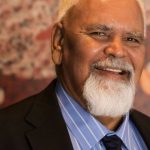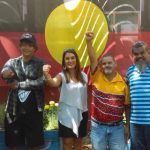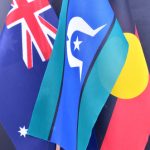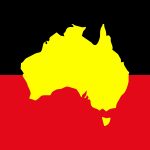Indigenous Nations Secure Their Economic Future
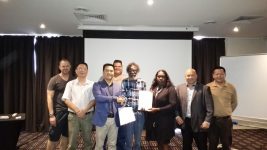
While the Australian government continues to be the only Commonwealth nation not to have established a treaty with First Nations people, some Indigenous nations in northern Queensland have entered into a first of its kind international treaty with a Chinese consortium.
On August 12, the Wik people of Aurukun in Cape York signed an economic treaty with Legions Wealth: a group of corporate investors from China. The $600 million deal will provide an economic future for the local people, something the federal and state governments have failed to do.
The deal will see wood that’s being cleared by Rio Tinto exported to China to make furniture and other products. Currently, the mining giant is clearing the trees for their Amrun bauxite mine. The company is then burning the scarce resource.
The Palaszczuk government granted the mining lease for the $2.5 billion mine in November 2015. The project, which is on the lands of the Wik and Wik Way people, involves the clearing of around 30,000 hectares of tropical savannah woodland over the mine’s 40 year period of operation.
Economic independence
The international treaty has a focus on establishing financial independence for the Indigenous owners of the land. It includes establishing a saw mill which will provide employment for the people of Aurukun.
And environmental sustainability is also a key part of the venture. As well as recycling the wood and preventing the impact the burning of it is having on the local area, the deal includes the replanting of trees and rejuvenation of the environment by Legions Wealth.
The treaty took eight months to negotiate and was facilitated by Nicholas, Edgar and Alex Wymarra: members of the Gudang Yadhaykenu clan. They introduced the Chinese investors to the Wik nations people.
Exercising established rights
“This is the first international treaty in our modern day,” Alex Wymarra said. “First Nations people are now utilising our rights according to the international rule of law.” He explained the “Wik Nations are exercising their Indigenous rights,” as stated in the UN charter.
Article 3 of the United Nations Declaration on the Rights of Indigenous Peoples outlines that Indigenous people have the right to self-determination. This includes “determining their political status” and to “freely pursue their economic, social and cultural development.”
While article 4 of the declaration states that in exercising their self-determination, Indigenous people have the right to “autonomy or self-government,” which extends to “ways and means of financing their autonomous functions.”
The UN declaration was adopted overwhelmingly by the UN General Assembly on September 13 2007. However, Australia – under the Howard government – was one of only four countries that voted against the agreement.
Closing the gap
“The Wik people are currently experiencing genocidal and ethnocidal poverty,” Mr Wymarra told Sydney Criminal Lawyers®. He accused government and mining companies of raping the land of its resources, while the Wik people receive none of the billions of dollars in profit made on their land.
But things are about to change. According to Wymarra, it’s a “new season in Cape York peninsula,” which is “one of economic empowerment” for the Wik people. The locals are envisaging a more autonomous and financially independent life for their future generations.
The deal doesn’t include any government involvement, as the “Wik nations are receiving all the support they need from domestic and international corporates.” Mr Wymarra explained it’s about the local people “receiving profitable outcomes using their land as their allodial commodity.”
Sovereign peoples
The Wik people have long been fighting to establish their rights over their own country. In 1975, the Bjelke-Petersen government excised part of the Aurukun Aboriginal Reserve to grant a bauxite mining lease to French company Pechiney using special legislation they rushed through parliament.
Donald Peinkinna, a Wik man, challenged the grant in the Queensland Supreme Court. He was initially successful, as the court found the agreement constituted a breach of trust. But, then the state government appealed to the Privy Council in London, which overturned the decision.
In the 1970s, a Wik man called John Koowarta and some other stockmen had wanted to buy the Archer River cattle station using funds from the Aboriginal Land Funds Commission as the station was on their traditional lands.
American business man Remington Rand, who owned the land, agreed to sell. But the state government blocked the sale, claiming Aboriginal people had enough land. Mr Koowarta challenged the matter in the High Court of Australia, and won.
However, Bjelke-Petersen then turned the cattle station into a national park, so Koowarta couldn’t own it.
The Wik decision
And then there was the landmark 1996 High Court case Wik Peoples v Queensland. The Wik people and the Thayorre people claimed to hold native title over two areas of land that were under pastoral leases. They argued that native title rights aren’t extinguished by the granting of leases.
The High Court ruled that a pastoral lease does not confer exclusive rights to the leaseholder. And the granting of the lease does not necessarily extinguish native title rights. Therefore, native title can coexist with the rights of a pastoral lease.
However, the court also found that when there is a conflict of interests, the rights of the pastoral leaseholder prevail and native title rights are extinguished.
A growing trend
However, the Wik Nations are not alone in seeking economic treaty agreements. The Gudang Yadhaykenu people entered into a treaty with former Macquarie Group banker Bill Moss in February this year.
The Gudang Yadhaykenu native title holders are leasing out 360,000 hectares of land in the northernmost region of Cape York to establish tourism and agricultural businesses. A portion of the profits will be put into Indigenous trusts for education, health and employment.
The Aboriginal nations in far northern Queensland are interested in benefiting from their homelands just as mining companies are. But the difference is First Nations people “see rejuvenation of the environment as the key ingredient to future productivity,” Mr Wymarra pointed out.
And as he puts it, these developments show all that “the world’s oldest surviving culture is still here and still has a voice.”


